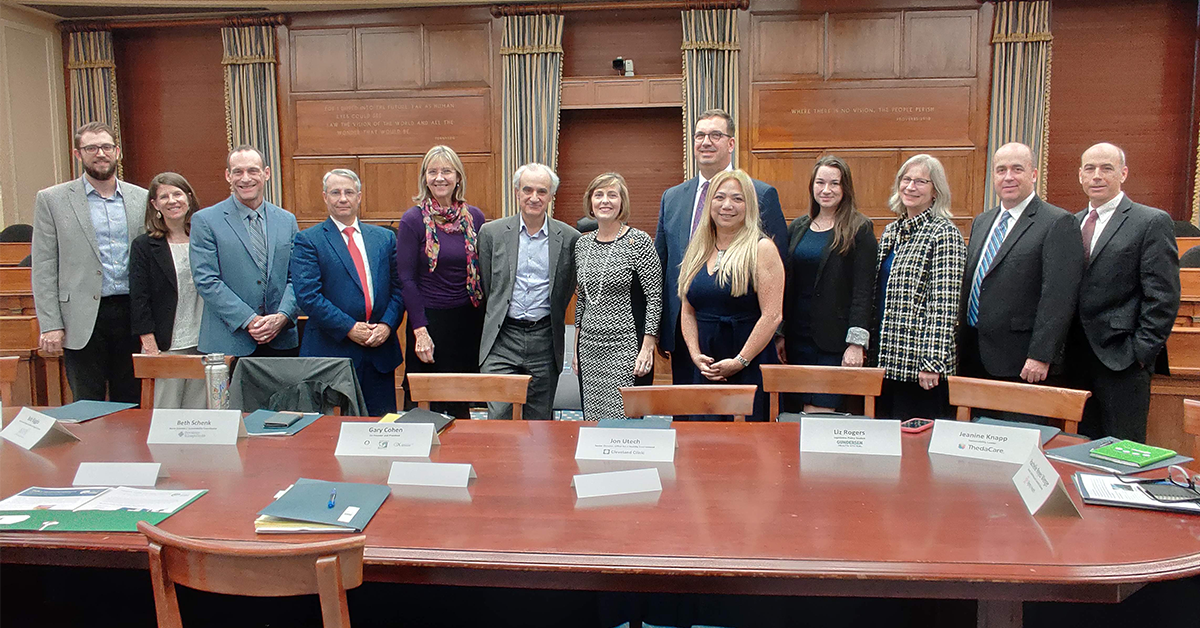The House Select Committee on the Climate Crisis released its congressional plan for Solving the Climate Crisis on June 30 with an ambitious set of policy solutions. The report includes comprehensive recommendations to build more resilient public health and health care systems. The policies address assessment and planning, infrastructure, emergency preparedness, and supply chain – with funding targeted at safety net, rural, and tribal facilities. Health Care Without Harm and its Health Care Climate Council provided substantive input on climate-smart health care to the committee during the development of their plan.
Gary Cohen, Health Care Without Harm founder, was quoted in materials the committee shared with media: “The Select Committee’s recommendations underscore the healthcare sector’s critical role in supporting community health and resilience in the face of climate impacts. As the COVID-19 pandemic has made clear, we must build a more resilient public health and health care system that protects all Americans and works to heal the glaring racial and economic disparities that make people more vulnerable to harm and disease.”
Council members with Rep. Kathy Castor (center), chair of the House Select Committee on the Climate Crisis in Oct. 2019
In October 2019, the Health Care Climate Council met with Rep. Kathy Castor, chair of the Select Committee, along with Rep. Suzanne Bonamici and committee staff during a full day of meetings on Capitol Hill. Climate Council members discussed the impact of climate change on public health and health care operations and educated policymakers about health care’s own carbon footprint. Climate Council members explained the importance of implementing policies to support energy efficiency measures, the transition to renewable energy, and to ensure hospitals and communities are climate-ready.
“The Select Committee’s recommendations in the ‘Improve public health and manage climate risks to health infrastructure’ section of the congressional plan reflect their deep understanding of these issues and provide a national roadmap for the transition to a climate-smart, climate-ready, and a more just health care sector,” says Jessica Wolff, director of the U.S. climate and health program at Health Care Without Harm.
Health Care Without Harm also talked with committee staff about how the COVID-19 pandemic has affected health systems and submitted policy recommendations for “Health Care and COVID-19: Recovery and Preparedness” to the Select Committee, House leadership, and the House Energy and Commerce Committee.
For more information about the Select Committee’s congressional plan, read our 7 takeaways for health and health care.
